Abstract
A multiple-baseline technique was used to evaluate generalization effects during articulation training with trainable mentally retarded subjects. Four target words were selected for each subject on the basis of whether the subject could articulate the word correctly when it was modelled but could not articulate the word correctly in response to a picture of it. Five different settings were selected for generalization probing and training for each subject. In Setting 1, Experimenter 1 initiated training sequentially on all four target words for each subject. Other experimenters probed for correct articulation generalization in four other settings. Training was initiated in these four other settings sequentially only if correct responding failed to generalize to a setting. Results indicated that it was necessary to initiate training on at least three of the four selected target words in at least one additional setting with an additional trainer before correct responding generalized to untrained settings.
Full text
PDF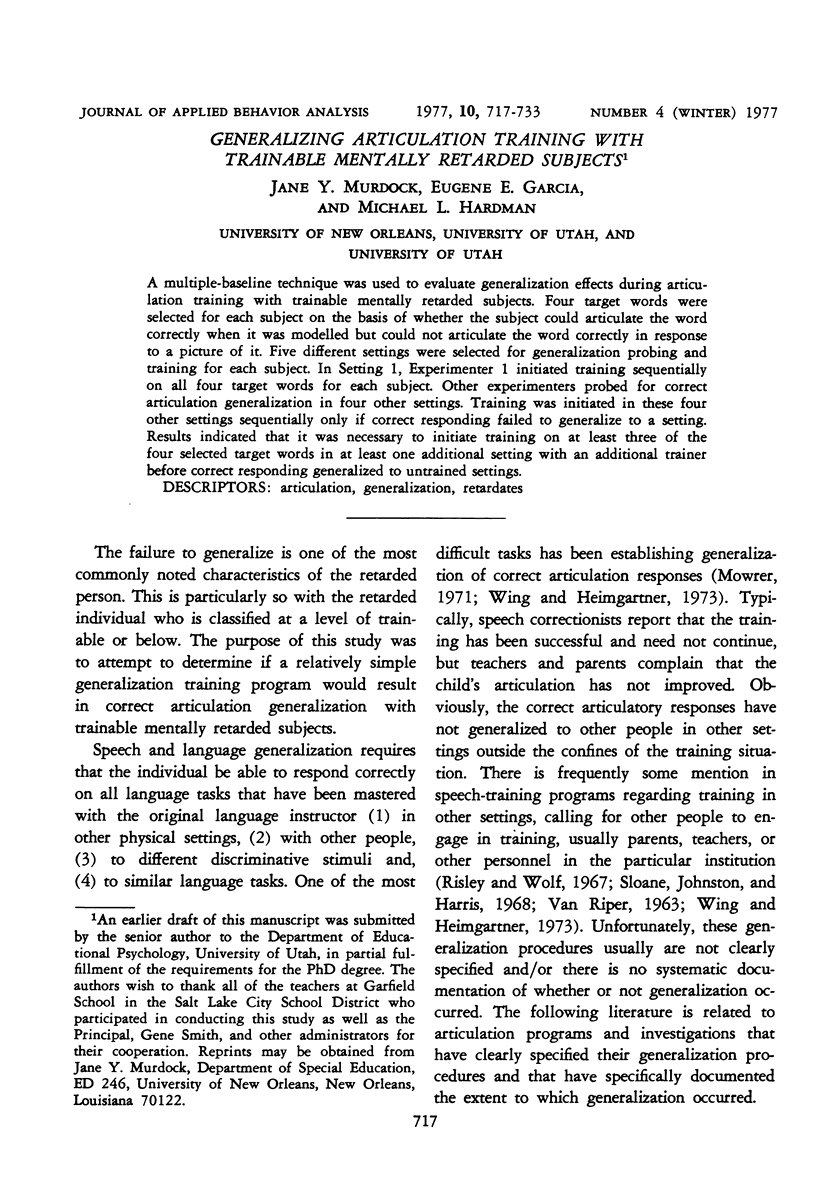
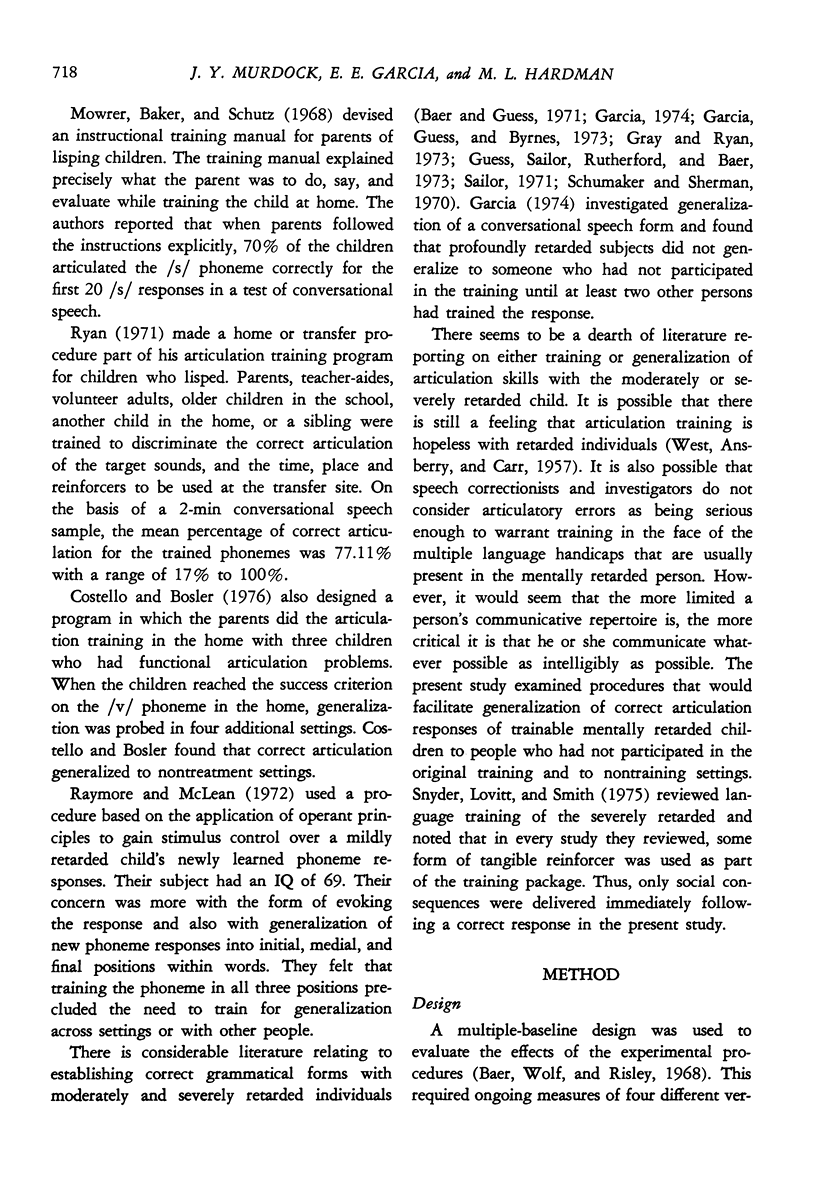
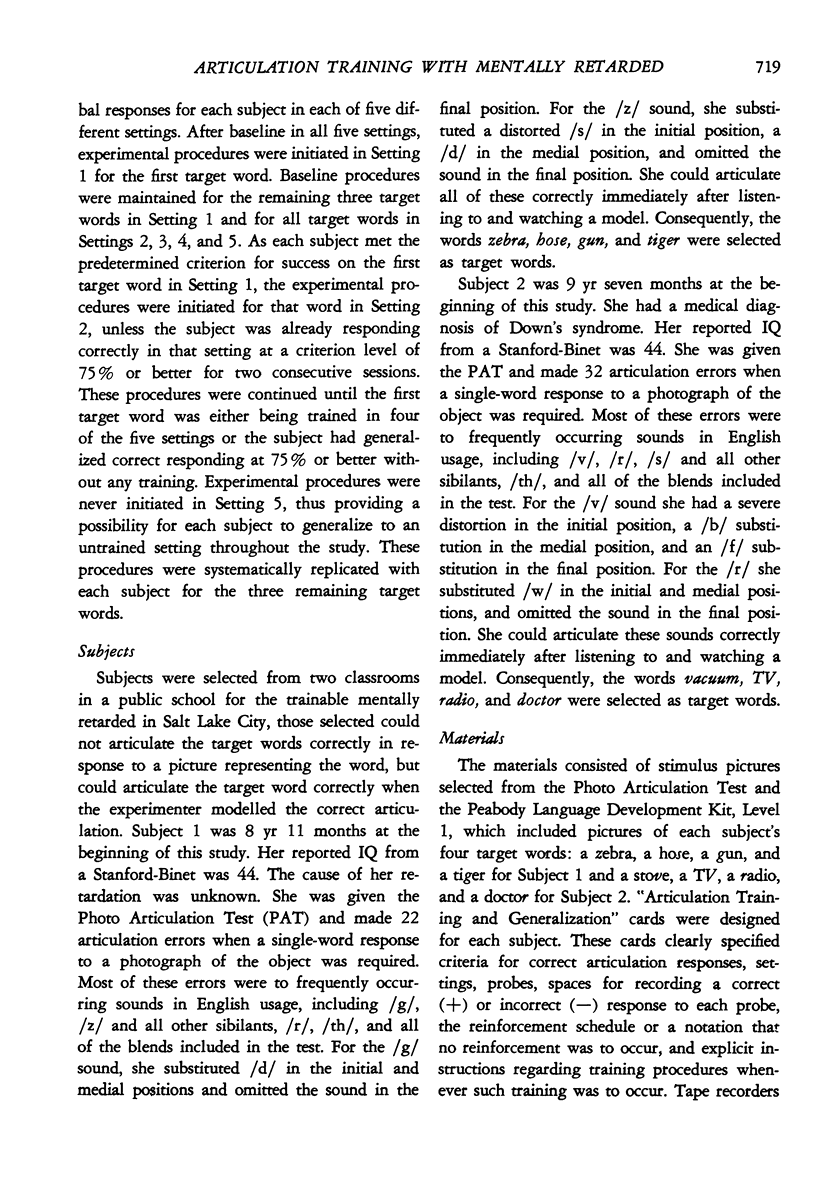
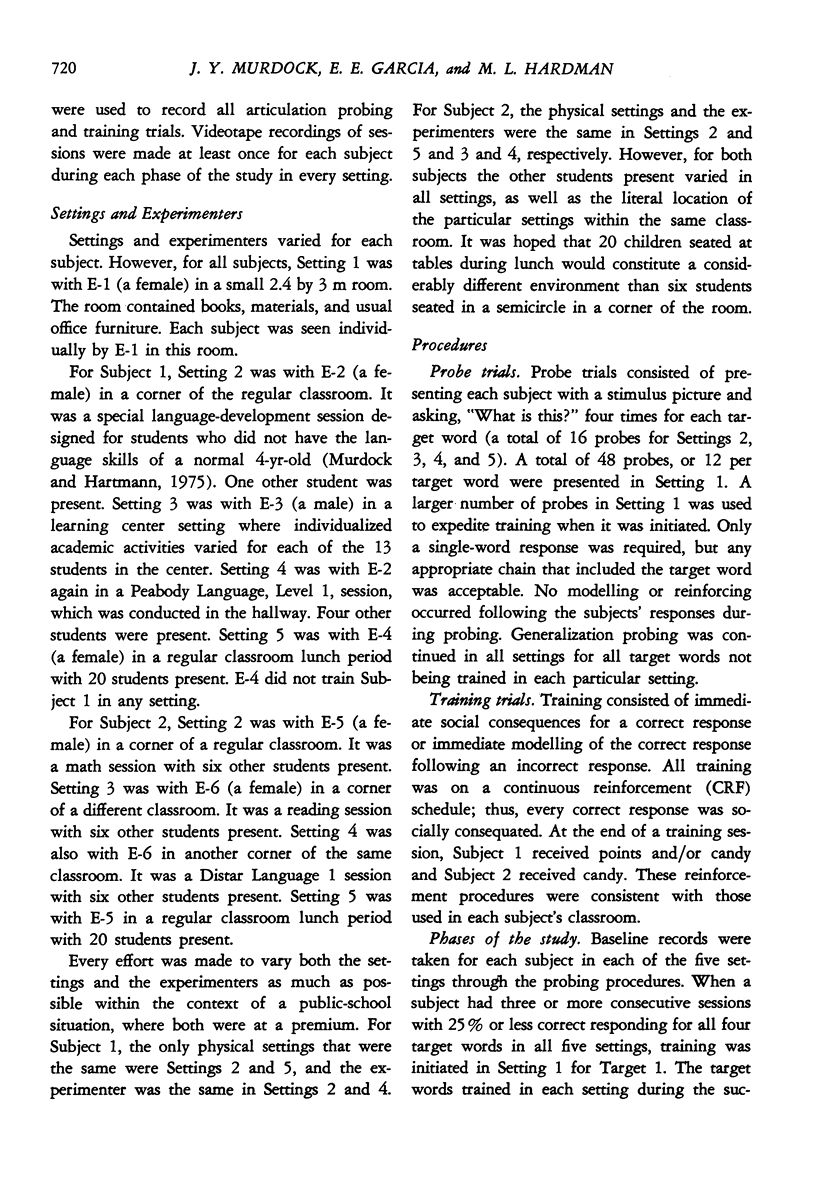
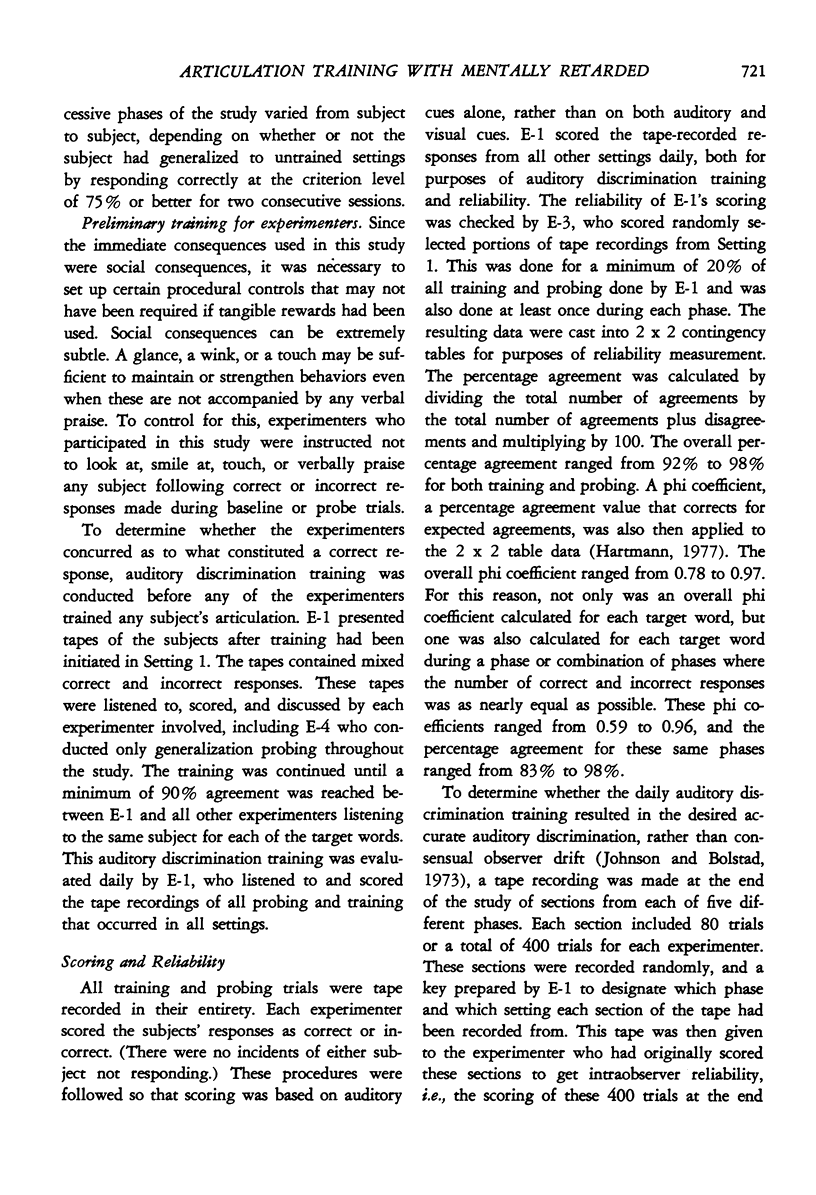
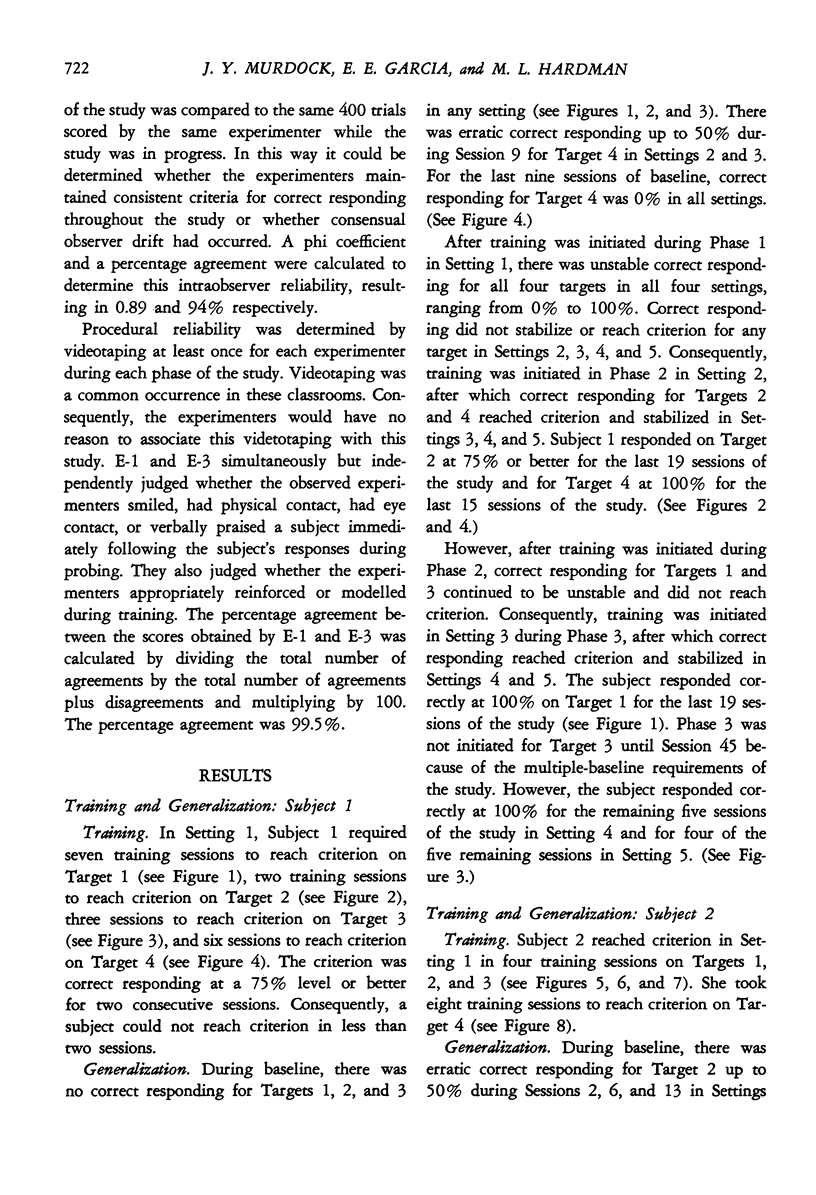
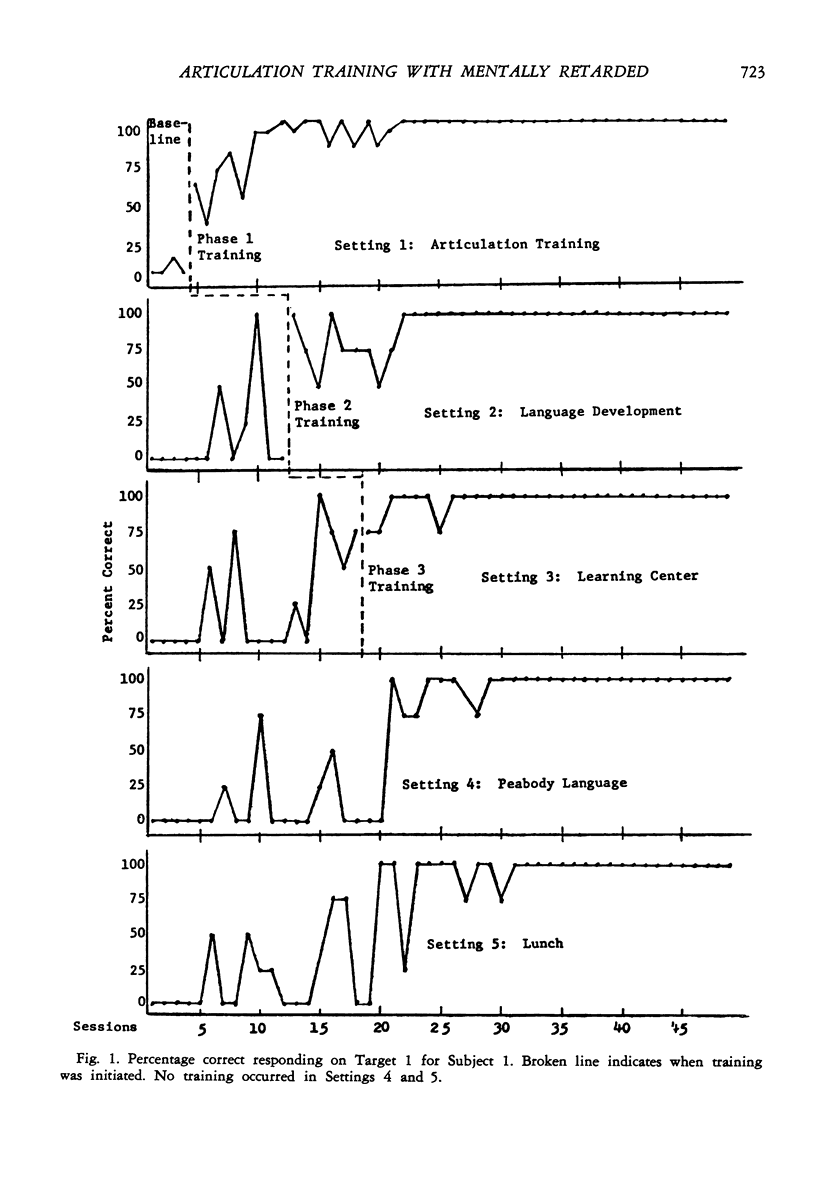
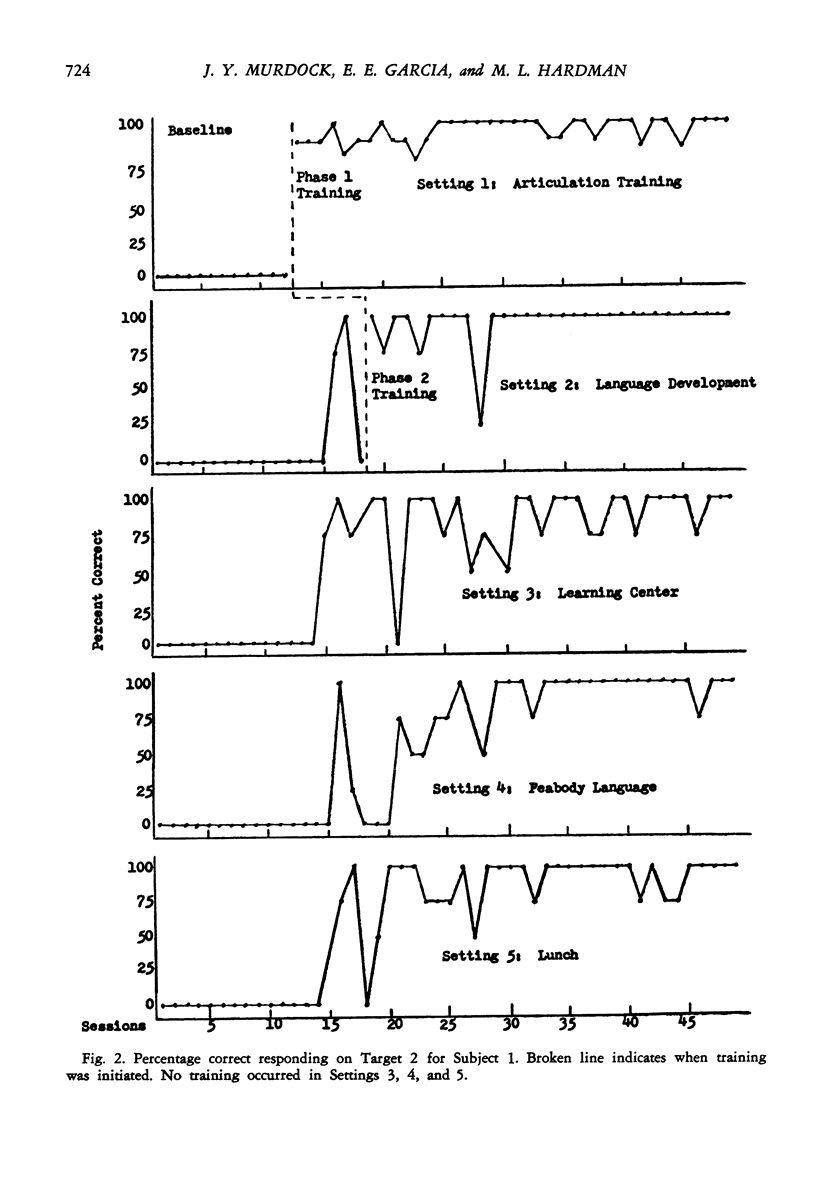
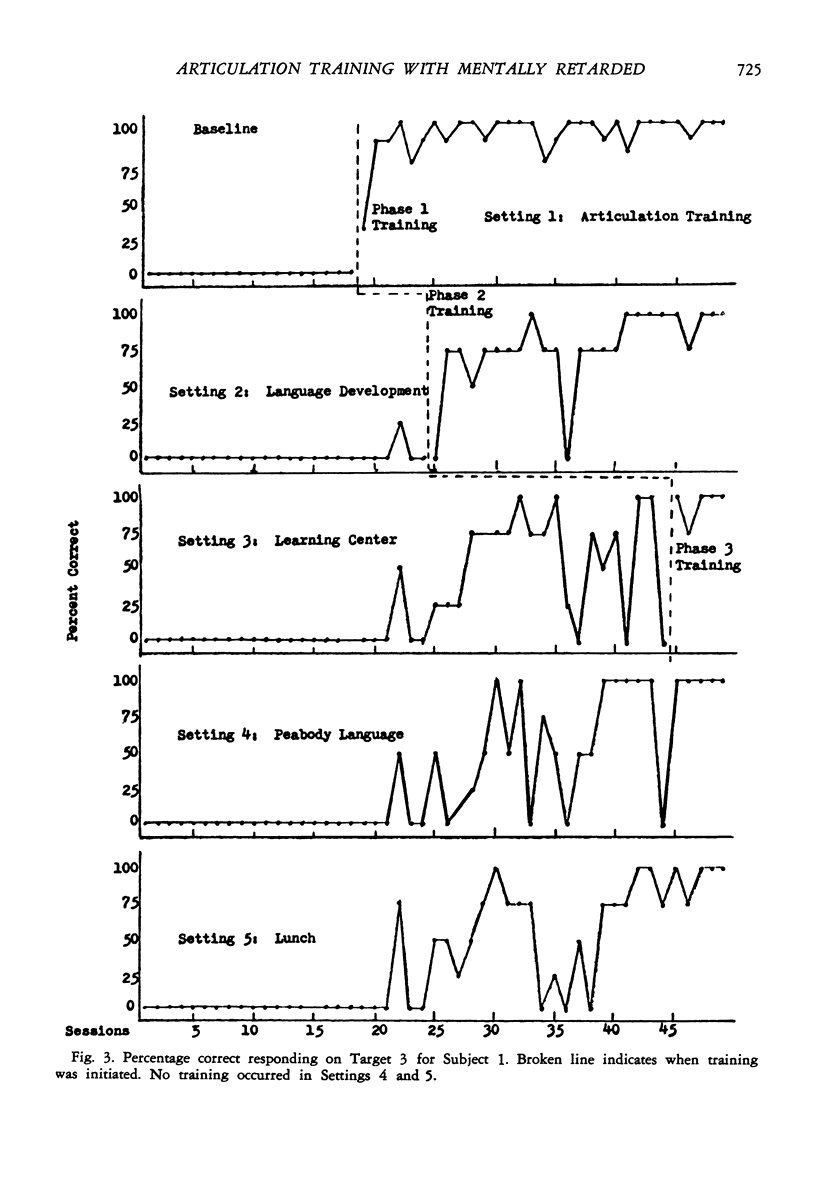
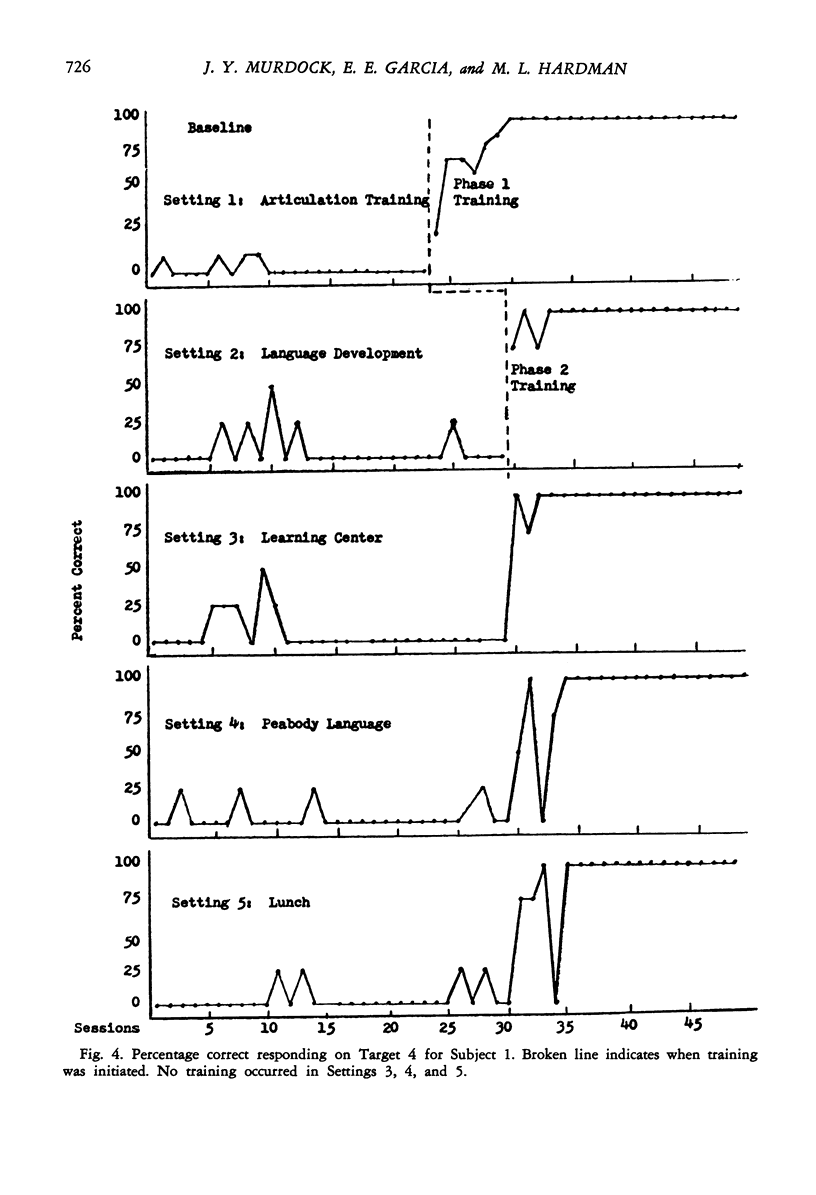
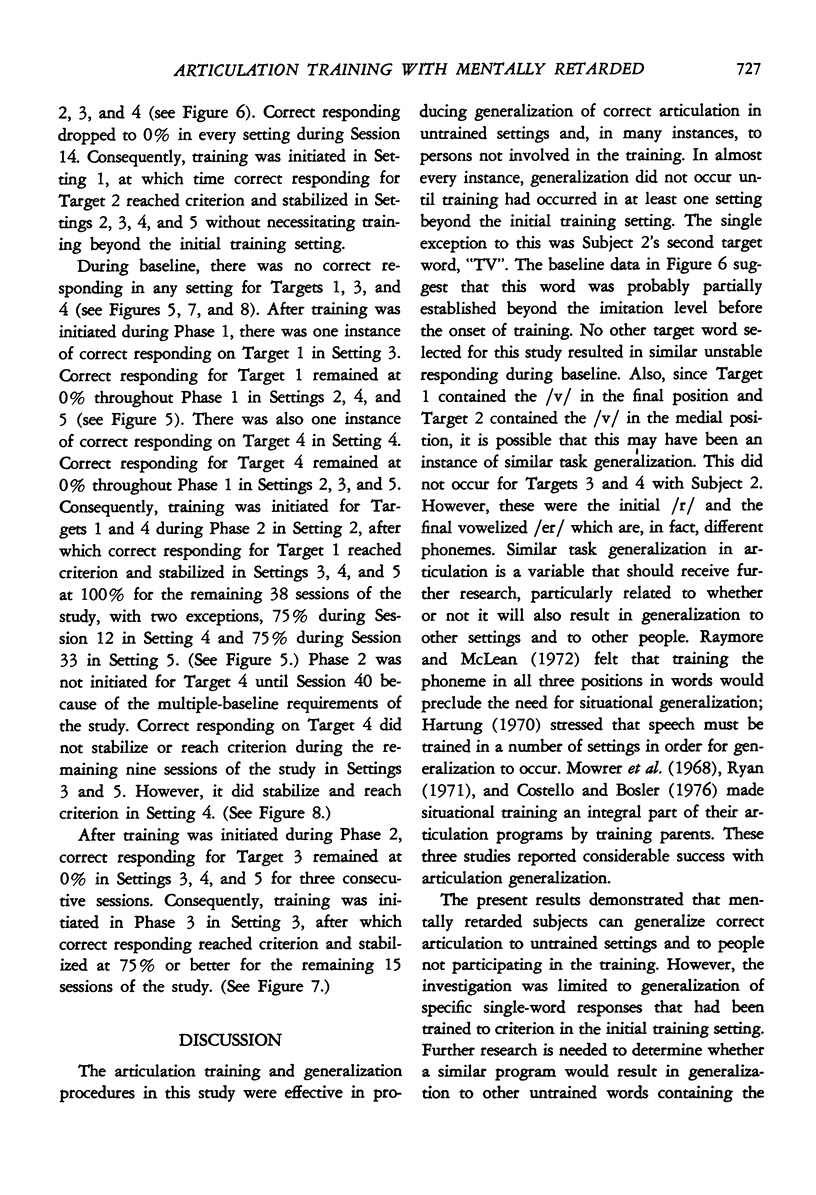
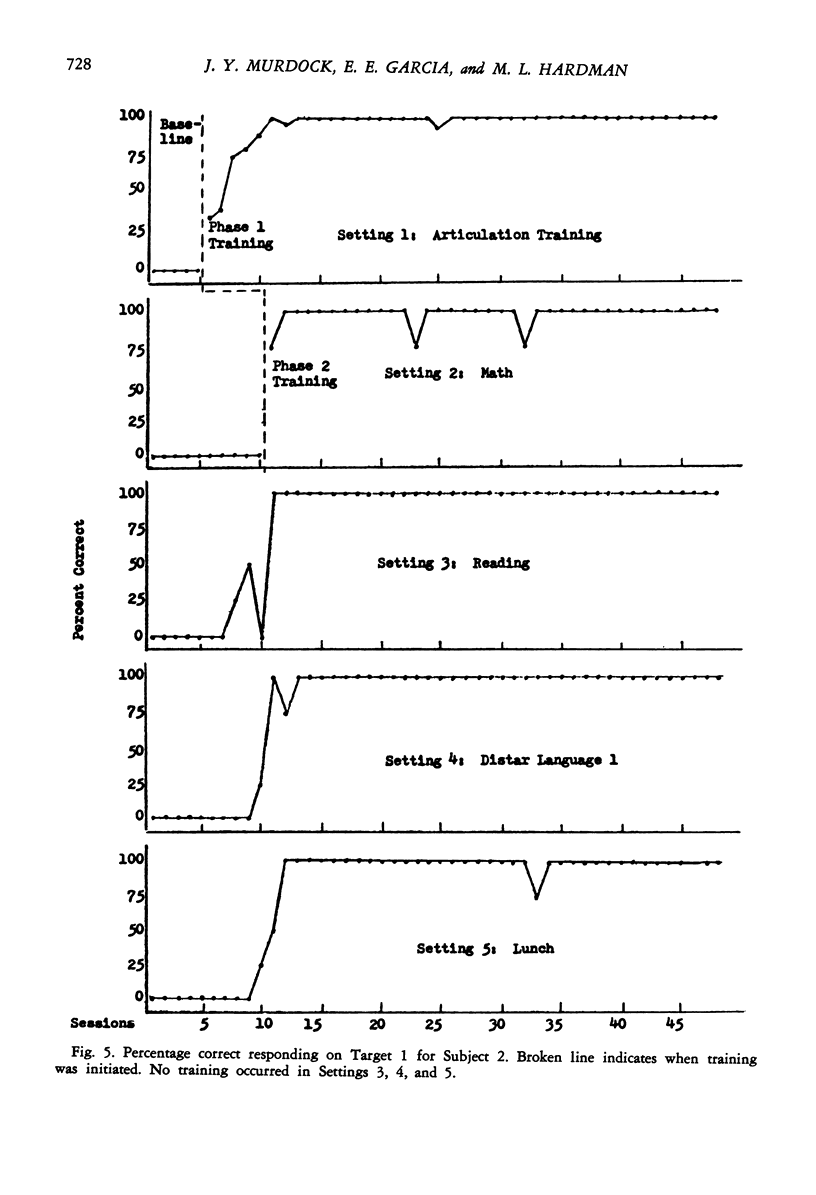
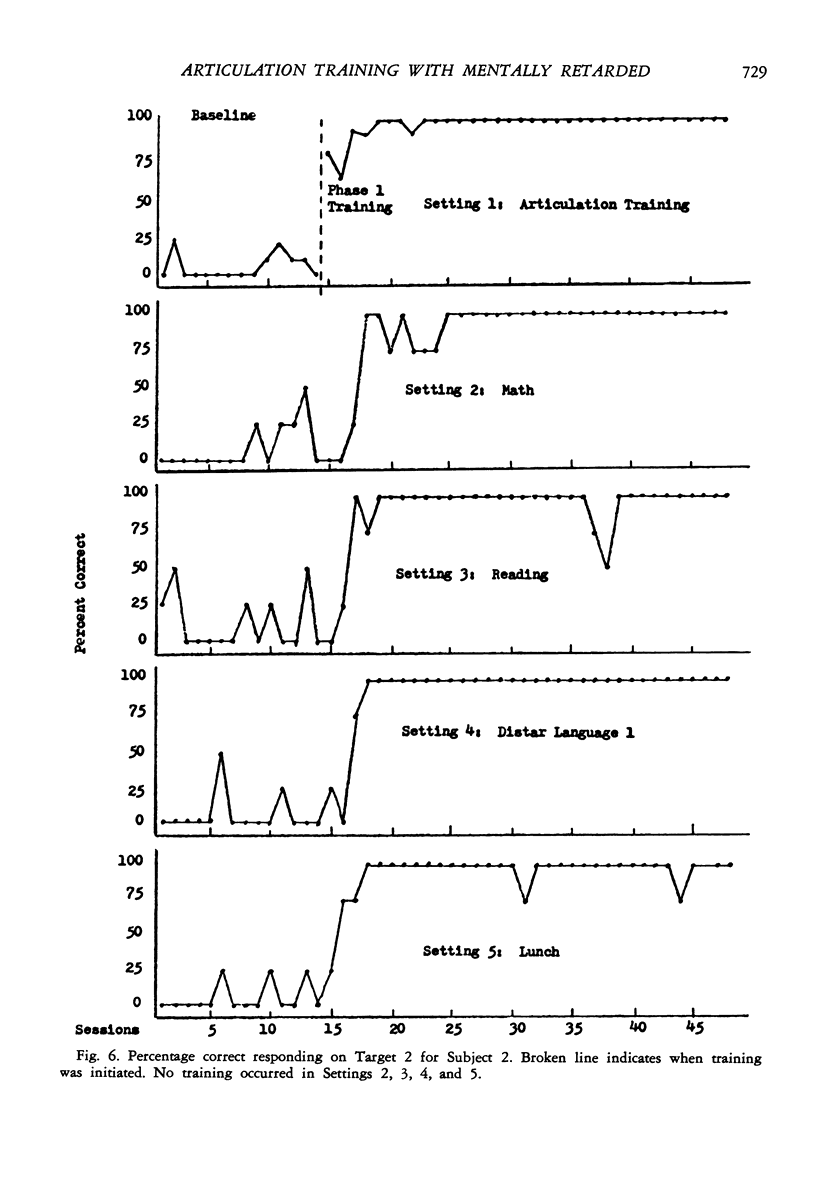
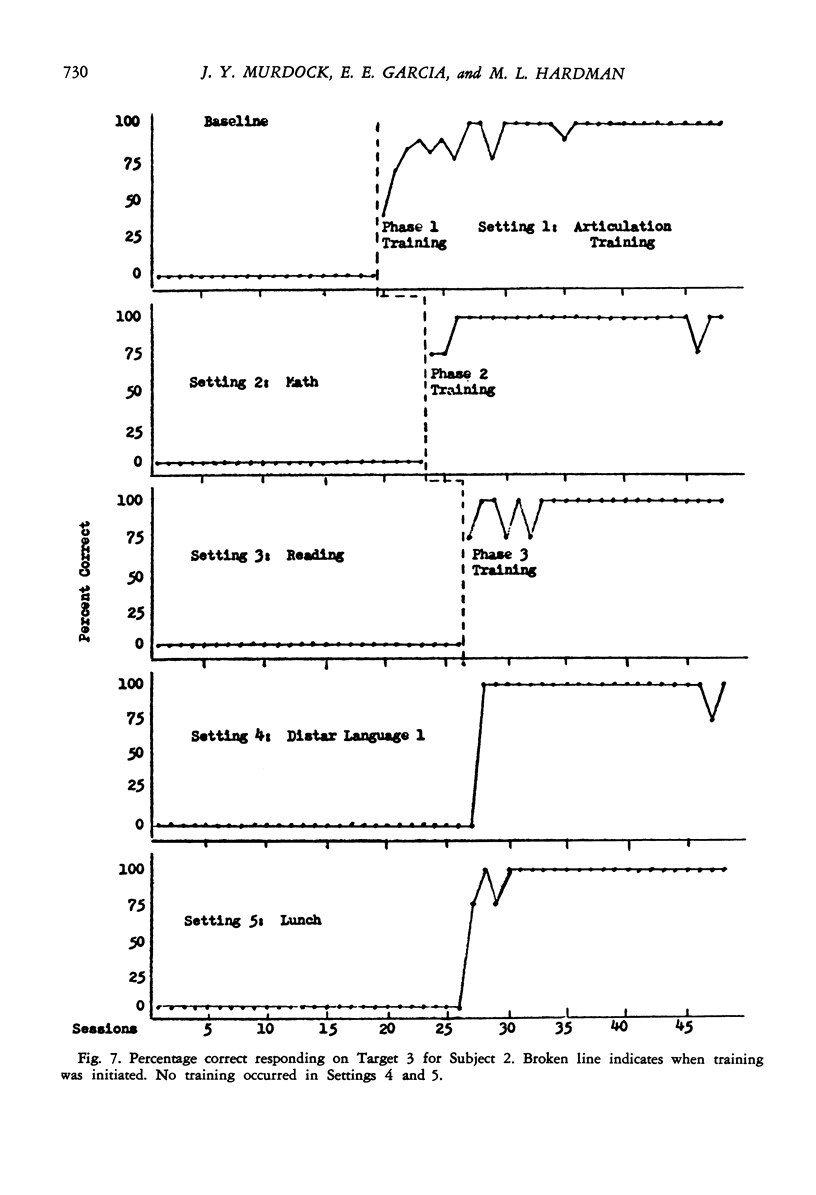
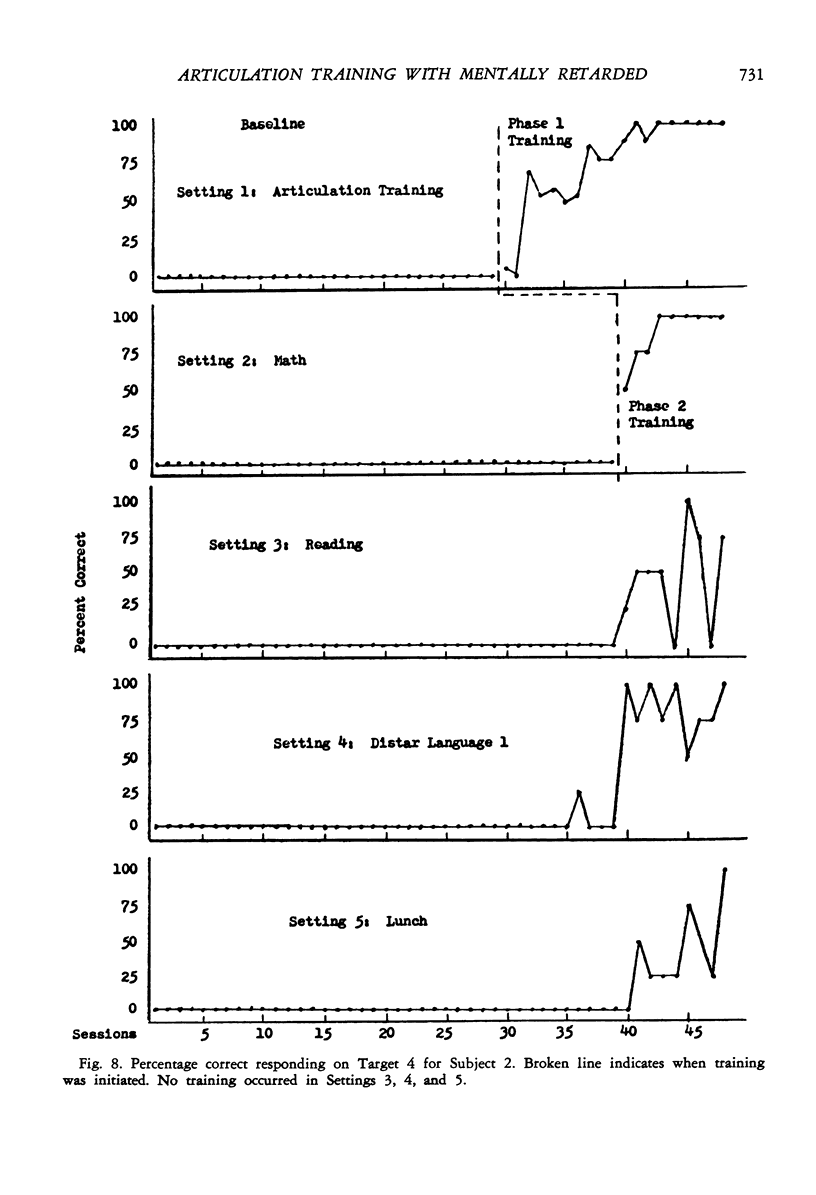
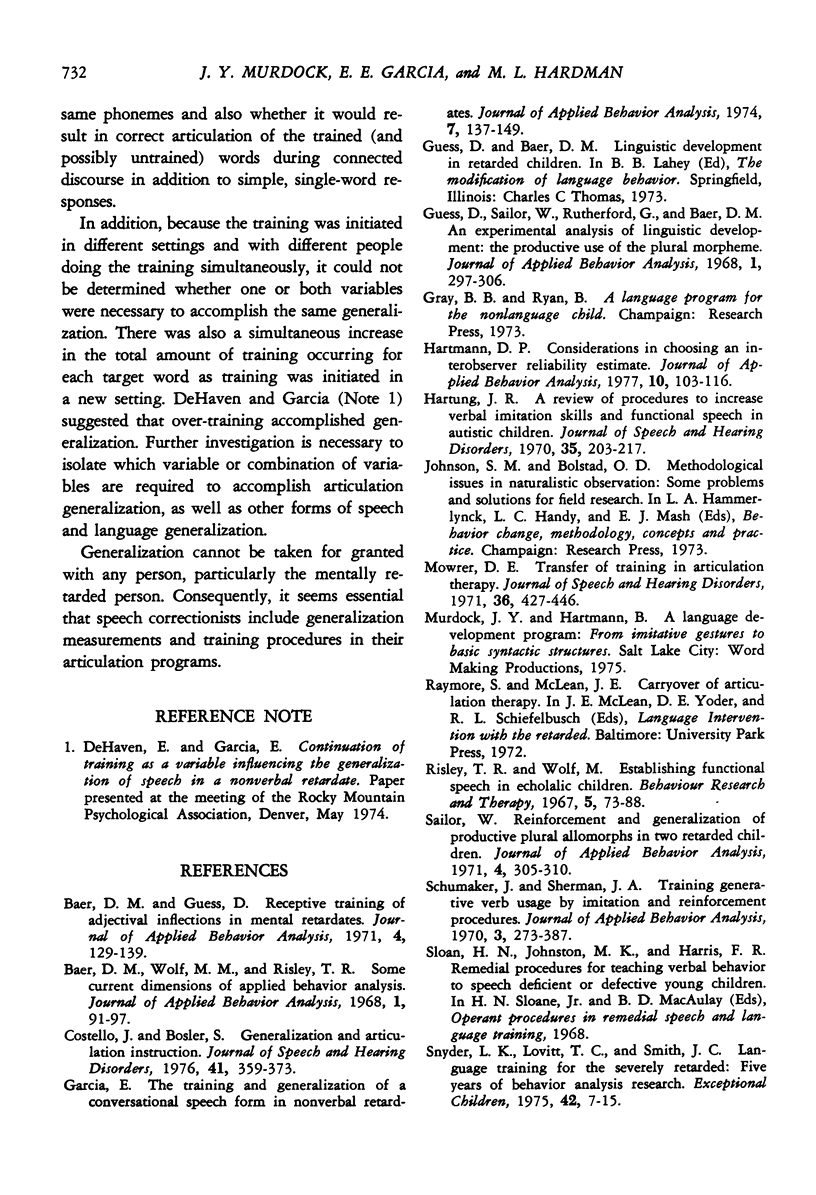
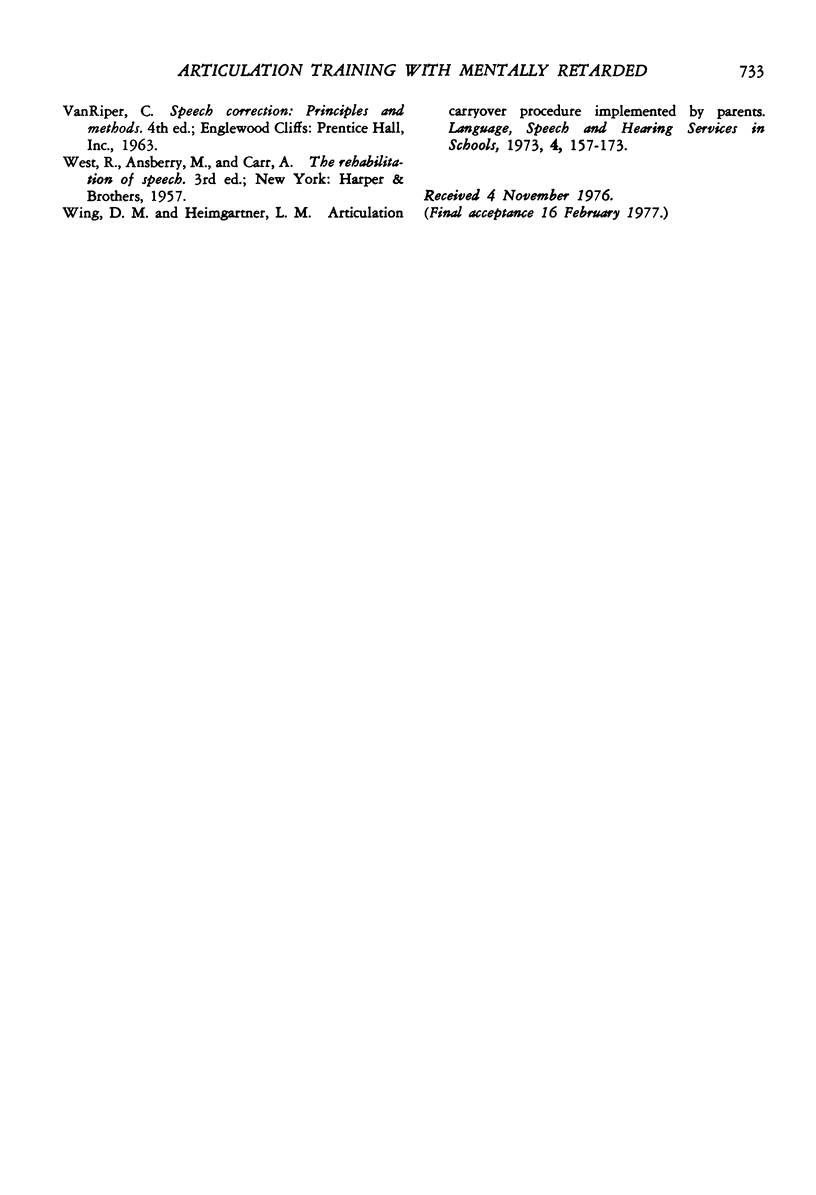
Selected References
These references are in PubMed. This may not be the complete list of references from this article.
- Baer D. M., Guess D. Receptive training of adjectival inflections in mental retardates. J Appl Behav Anal. 1971 Summer;4(2):129–139. doi: 10.1901/jaba.1971.4-129. [DOI] [PMC free article] [PubMed] [Google Scholar]
- Baer D. M., Wolf M. M., Risley T. R. Some current dimensions of applied behavior analysis. J Appl Behav Anal. 1968 Spring;1(1):91–97. doi: 10.1901/jaba.1968.1-91. [DOI] [PMC free article] [PubMed] [Google Scholar]
- Costello J., Bosler S. Generalization and articulation instruction. J Speech Hear Disord. 1976 Aug;41(3):359–373. doi: 10.1044/jshd.4103.359. [DOI] [PubMed] [Google Scholar]
- Garcia E. The training and generalization of a conversational speech form in nonverbal retardates. J Appl Behav Anal. 1974 Spring;7(1):137–149. doi: 10.1901/jaba.1974.7-137. [DOI] [PMC free article] [PubMed] [Google Scholar]
- Guess D., Sailor W., Rutherford G., Baer D. M. An experimental analysis of linguistic development: the productive use of the plural morpheme. J Appl Behav Anal. 1968 Winter;1(4):297–306. doi: 10.1901/jaba.1968.1-297. [DOI] [PMC free article] [PubMed] [Google Scholar]
- Hartmann D. P. Considerations in the choice of interobserver reliability estimates. J Appl Behav Anal. 1977 Spring;10(1):103–116. doi: 10.1901/jaba.1977.10-103. [DOI] [PMC free article] [PubMed] [Google Scholar]
- Hartung J. R. A review of procedures to increase verbal imitation skills and functional speech in autistic children. J Speech Hear Disord. 1970 Aug;35(3):203–217. doi: 10.1044/jshd.3503.203. [DOI] [PubMed] [Google Scholar]
- Mowrer D. E. Transfer of training in articulation therapy. J Speech Hear Disord. 1971 Nov;36(4):427–446. doi: 10.1044/jshd.3604.427. [DOI] [PubMed] [Google Scholar]
- Risley T., Wolf M. Establishing functional speech in echolalic children. Behav Res Ther. 1967 May;5(2):73–88. doi: 10.1016/0005-7967(67)90001-0. [DOI] [PubMed] [Google Scholar]
- Sailor W. Reinforcement and generalization of productive plural allomorphs in two retarded children. J Appl Behav Anal. 1971 Winter;4(4):305–310. doi: 10.1901/jaba.1971.4-305. [DOI] [PMC free article] [PubMed] [Google Scholar]
- Schumaker J., Sherman J. A. Training generative verb usage by imitation and reinforcement procedures. J Appl Behav Anal. 1970 Winter;3(4):273–287. doi: 10.1901/jaba.1970.3-273. [DOI] [PMC free article] [PubMed] [Google Scholar]
- Snyder L. K., Lovitt T. C., Smith J. O. Language training for the severely retarded: five years of behavior analysis research. Except Child. 1975 Sep;42(1):7–15. doi: 10.1177/001440297504200102. [DOI] [PubMed] [Google Scholar]


